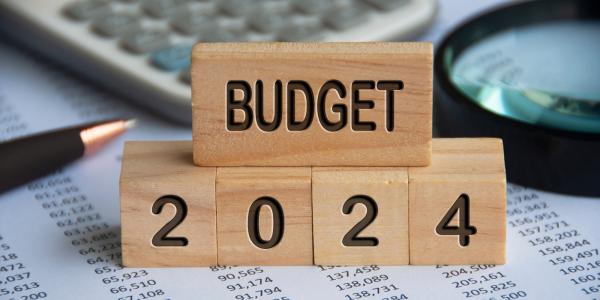Household income assessment for child benefit charge: possibly fairer but far from simple, says LITRG
The Low Incomes Tax Reform Group (LITRG) has said today’s Budget decision to increase the high income child benefit charge threshold to £60,000 from April 2024 will bring the scope of the charge closer to the original policy intent, but has cautioned that the plan for the tax charge to be based on joint household incomes by April 2026 may be complex, costly and difficult to achieve.1

When the charge was introduced in 2013, the income threshold was set at £50,000. The original intention was to target higher rate taxpayers.2
However, inflation has increased the number of taxpayers liable to the charge. Those affected can suffer high marginal tax rates, creating disincentives to work.3
If adjusted for the impact of inflation, the original £50,000 threshold would be equivalent to around £67,000 today.4
Tom Henderson, LITRG Technical Officer, said:
“Increasing the threshold to £60,000 will help to bring the scope of the charge back into line with the original policy intent. LITRG has been calling for an increase to the threshold since 2020.5 However, it is a shame that the new threshold does not entirely compensate for the impact of inflation to date.
“Setting the point at which child benefit is fully clawed back at £80,000 is a positive change. It will mean child benefit is clawed back more slowly, helping to lower marginal rates and potentially improving work incentives.”
On the proposal for the charge to be assessed on a household income basis by April 2026, Tom Henderson added:
“The current design of the tax charge is controversial for a number of reasons, including the fact that a household with two parents earning £49,000 a year each have no tax charge to pay whereas a household with one parent earning £60,000 currently will have a tax charge equal to the full amount of child benefit they receive.6 This is felt to be unfair by many and it is welcome that the government has finally acknowledged this unfairness in the existing policy.
“Income tax is assessed on an individual basis, but this plan proposes that liability to the charge will be based on joint household income. This raises questions about what level you would set the threshold at, or whether there should be different thresholds for different household makeups. Families will want to know the level of joint income on which the charge will be based, as it is possible that a lower joint threshold will mean some families who are not currently liable being brought into its scope.
“We are concerned the tax system is not geared up to deal with assessment based on household income and that the changes required may be costly, complicated and difficult to achieve, putting the changes at odds with the Chancellor’s simplification agenda.7
“There may be other ways to address this unfairness, as well as other issues with the charge, that may be simpler and less costly. We would recommend taking a step back and issuing a call for evidence to gather a range of views before jumping into a detailed consultation. It may be time for the government to consider more radical reforms – for example, by abolishing the charge altogether and considering alternative ways of delivering the policy.”
Notes for editors
- For details of the changes, see Spring Budget 2024. The Chancellor has also announced that the point at which child benefit is fully clawed back by the charge will be increased to £80,000.
- See the Government’s 2010 Spending Review.
- Child benefit is currently paid at a rate of £24 a week for the eldest child and £15.90 a week for each additional child. For a 52-week benefit year, the annual entitlement for two children is £2,074.80. This is withdrawn at a rate of one per cent for each £100 of income above the £50,000 threshold. Therefore, on an additional £100 of income within the £50,000 to £60,000 range, the partner with the higher adjusted net income in such a household likely suffers £20 of high income child benefit charge, £40 of tax and £2 of NIC: a total of £62. For three children, the weekly entitlement is £55.80, or £2,901.60 for 52 weeks. For an additional £100 of income within the £50,000 to £60,000 range, the figures are £29 of high income child benefit charge, £40 of tax and £2 of NIC: a total of £71.
- Based on the Bank of England inflation calculator.
- See LITRG’s 2020 Budget Representation.
- The policy also undermines the principle of independent taxation, because the person liable to the charge may not be the person receiving the benefit. In some recent cases, the child benefit payments have been received by an ex-partner and have not even formed part of the household income of the person liable to the charge (see LITRG’s August 2023 Press Release, Child benefit tax trap warning for separated couples).
- The changes to the charge were announced in the Budget speech along with other measures under a general banner of ‘Making our system simpler and fairer… [starting] with some measures to make our tax system simpler and fairer’.
